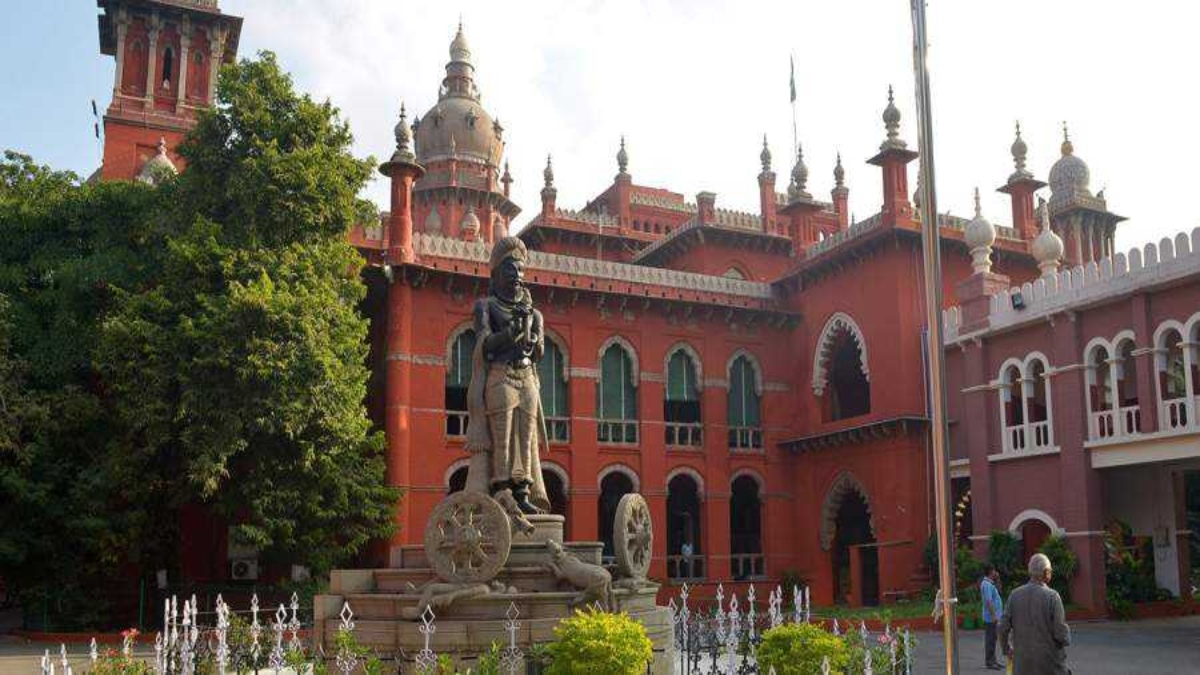Previously, the Hon’ble Madras High Court had made an anonymous reported order (Citation: W.P.(M.D.) No. 12015/2021) on July 16, 2021, where it had ‘prima facie’ observed, inter alia, that a ‘right to be forgotten’ (‘RTBF’) against court orders exists under the fundamental ‘right to privacy’ enshrined in Article 21 of the Indian Constitution, as recognized unanimously by a Nine-Judge Constitution Bench of the Hon’ble Supreme Court of India in Justice K.S. Puttaswamy (Retd.) vs. Union of India, (2017) 10 SCC 1 (‘Puttaswamy Judgment’). I had previously analysed and critiqued the foregoing order on seven grounds in an earlier issue for The Daily Guardian (dated July 31, 2021). Notably, the High Court had previously observed that, “obviously even a person, who was accused of committing an offense and who has been subsequently acquitted from all charges, will be entitled for redacting his name from the order passed by the Court in order to protect his Right of Privacy.”
Recently, taking a 180 degree turn from the position in the earlier order, the Madras High Court in a publicly reported judgment by Hon’ble Mr. Justice N. Anand Venkatesh in Karthick Theodre vs. The Registrar General, Madras High Court, Chennai and Ors., 2021 SCC OnLine Mad 2755, declared that a RTBF cannot lie against court judgments. The High Court completely rejected the petitioner’s prayer seeking a direction in form of RTBF to redact his name from a previous judgment of the High Court, wherein he was acquitted from various criminal charges, including the serious charge of punishment for the offence of rape. The petitioner had also impleaded a private entity, Indian Kanoon (Ikanoon Software Development Pvt. Ltd.) as a respondent and sought a declaration to have them redact his name from the reported acquittal judgment of the High Court.
ISSUES OF CONSTITUTIONAL IMPORTANCE
The first question of constitutional importance before the High Court was ascertaining whether an accused person who on being charged for committing an offence, having undergone trial and ultimately having been acquitted of all charges by a court of competent jurisdiction, has the right to seek for destruction, erasure or redaction of their personal information from the public domain. Second, it had to ascertain and determine whether such a right is traceable to fundamental right to privacy of individuals as enshrined in Article 21 of the Constitution and recognized as an enforceable right in the Puttaswamy Judgment.
HIGH COURT’S ANALYSIS ON EFFECTS OF ACQUITTAL AND REDACTION
The High Court recorded that indisputably, the fundamental right to privacy is protected as an intrinsic part of the right to life and personal liberty under Article 21 and as a part of freedoms guaranteed by Part III (Fundamental Rights Chapter) of the Indian Constitution. Moreover, it recorded that in the present case, a ‘right to reputation’ under Article 21 was also involved.
Importantly, the High Court recalled Supreme Court’s precedent in Dilip Kumar Sharma And Ors. vs. State of Madhya Pradesh, (1976) 1 SCC 560, where the Supreme Court explained the phrase “the judge shall record an order of acquittal” used in Sections 232, 248 and 255 of the Code of Criminal Procedure (‘CRPC’). Importantly, the High Court extracted important observations from this precedent, most notably that, “… an order of acquittal particularly one passed on merits, wipes off the conviction and sentence for all purposes, and as effectively as if it had never been passed. An order of acquittal annulling or voiding a conviction operates from nativity.” The High Court further recorded a submission stating that a judgment of acquittal gives the accused a right of getting an ‘automatic expungement of his name’ from all records and particularly from those which are within public domain.
Moving forward, the High Court acknowledged that owing to the public availability of orders and judgments of judicial authorities on the public domain, anyone could access information conveniently by the touch of a button. In addition, due to the knowledge of a person’s acquittal in a case involving serious offences, a serious impact on the reputation and privacy of the person was being caused. However, on a deeper review of the issue after the previous order of the High Court, it felt that the constitutional question on existence of RTBF against court orders is not as simple and straight as it sounded. Moreover, it felt that without consideration of certain finer aspects, a judgment declaring existence of RTBF against court orders could open floodgates of litigation, due to which it also sought assistance and opinion of members of the Bar.
Subsequently, the High Court noted that there was no doubt that the moment an order of acquittal is recorded by a judge, the identity of a person as an accused is completely wiped out due to the operation of law. However, it added that “while undertaking the process of redaction, a Court is called upon to literally strike off the name of the person from the order of judgment which recorded the acquittal of the person from the criminal proceedings.” It noted that a court while adjudicating a writ petition seeking redaction of name from a previous judgment is only looking at the end product of a criminal litigation, which is the final judgment or an order of acquittal that gets published. Moreover, it agreed with the submission of Mr. Arun Anubumani, Advocate, who had submitted that, “it is only an order or judgment of acquittal which actually saves the honour of a person whose name has already been tarnished due to various publications that take place and which are also readily available in search engines.”
Importantly, the High Court observed that India did not have a system similar to the USA, where through a court order, there could be complete destruction of the entire records of an accused person who is acquitted. Such acquitted people in the USA could start their life with a clean slate and lead a normal life with the rights provided by the Constitution, including a right to fill “nil” in their job application columns for criminal records. In such a system, the entire personal information relating to acquitted individuals’ criminal proceeding records would get destroyed and sealed from the public domain.
However, the High Court also took cognizance of the fact that while the USA system posits certain benefits, a system which is looking for identifying an effective right for an individual acquitted in a criminal proceeding, must look for a consummate relief and that there would be no benefit in just erasing the name of such individual in a final judgment or order. Contrarily, a counterproductive outcome may happen where the acquitted person may get their name erased from a judgment or order, but due to other materials available in public domain such as materials from during the time criminal proceedings actually commenced, their name and reputation may get damaged and they would have no other way of proving that they were ultimately acquitted. Consequently, the High Court implicitly asserted that grant an order in form of RTBF to enable redaction of the petitioner’s name would be counterproductive where there are other tarnishing publications in the public domain.
IMPORTANCE OF PRINCIPLES OF ‘OPEN JUSTICE’
The High Court emphasised on the principle of open justice, which according to it was universally acclaimed tenets of administration of justice. It also recalled words of famous British scholar Jeremy Bentham, who had noted that ‘publicity’ is the very soul of justice and surest of all guards against improbity, without which there could be no justice. The House of Lords (UK) in Scott vs. Scott, 1913 A.C. 417, had echoed this principle by Bentham, highlighting that it is a general principle that courts must administer justice in public. The High Court records that principle of open justice has been identified as a central tenet of the rule of law in India, although it is not monolithic and encompasses various precepts. While the court agreed with restatement of this principle, it recorded that exceptions to this rule exist in cases including those involving matrimonial cases, minors or juveniles etc., where publicity may be harmful to the subject matter of the case before a court, and consequently, would require principle of open justice to yield to the paramount duty to do justice.
Moving forward, the High Court referred to Supreme Court’s precedent in Swapnil Tripathi vs. The Supreme Court of India, (2018) 10 SCC 639 (‘Tripathi Judgment’), where Hon’ble Justice Dr. D.Y. Chandrachud had identified four elements of ‘open justice’, which also included “public access to judgments of Courts”. Justice Chandrachud, inter alia, had observed that, “Public confidence in the judiciary and in the process of judicial decision making is crucial for preserving the rule of law and to maintain the stability of the social public.” Consequently, following the principles on open justice as laid down in the Tripathi Judgment, the High Court held that it is an established position of law that “public access to judgments of courts is an integral precept of the concept of open justice, promoting the rule of law.” This is one of the reasons why a RTBF could not lie against a court order or judgment.
RIGHT TO PRIVACY CANNOT AFFECT MATTERS OF PUBLIC RECORD
While the High Court had previously acknowledged that there can indeed be no dispute that a fundamental right to privacy exists at a general level in light of the Supreme Court’s Puttaswamy Judgment, it had to be ascertained whether such a right exists in the context of judgments and orders of a court, which are matters of public record. To make this determination, the High Court referred to Supreme Court’s precedent in R. Rajagopal vs. State of Tamil Nadu, (1994) 6 SCC 632 (‘Rajagopal’), which was discussed and approved in the Puttaswamy Judgment by a majority comprising separate judgments by Hon’ble Mr. Justice R.F. Nariman and Justice Chandrachud (for himself and for Hon’ble Justices J.S. Khehar, R.K. Agrawal and Abdul S. Nazeer). The Supreme Court in Rajagopal had acknowledged that a right to privacy was implicit within Article 21 and that a citizen had right to extend the protection afforded by right to privacy in order to safeguard himself/herself, his/her family, marriage, procreation, motherhood, child-bearing and education amongst other matters.
However, the Supreme Court in Rajagopal further held that the foregoing rule was subject to the exception that, “any publication concerning the aforesaid aspects becomes unobjectionable if such publication is based upon public records including court records.” Consequently, the Supreme Court held that once a matter becomes a matter of public record, the right to privacy no longer subsists and it becomes a legitimate subject for comment by press and media amongst others, although there are exceptions to this principle (for e.g., cases relating to sexual assault, kidnap, abduction or like offences against a female victim, which would be valid reasons to exclude personal information of victims in interests of decency).
Thus, the High Court held that following Supreme Court’s precedent in Rajagopal, there can lie no right to privacy (or RTBF) against judgments or orders of courts which are public records. The High Court also recalled Hon’ble Mr. Justice S.K. Kaul’s concurring judgment in Puttaswamy Judgment, who had recognized the position in context of what is now known as RTBF, holding that, “Such a right cannot be exercised where the information/data is necessary, for exercising the right of freedom of expression and information, for compliance with legal obligations, for the performance of a task carried out in public interest… Such justifications would be valid in all cases of breach of privacy including breaches of data privacy.”
Consequently, in addition to the reasoning on public records, the various fundamental rights and other overwhelming interests of the general public/public at large, as well as the fundamental right of citizens to “practise any profession, or to carry on any occupation, trade or business” enshrined under Article 19(1)(g) of the Constitution will also have to be balanced against a RTBF. Other competing interests may include legal compliance, state and public interests, as well as permissible commercial interests of private entities etc. in publishing personal data/personal information of an individual based on court orders/judgments available in public domain. Where competing rights/interests carry a greater weight on balancing against RTBF, the RTBF prayers will certainly not prevail.
ADMINISTRATION OF JUSTICE THROUGH PRONOUNCEMENT OF COURT JUDGEMENTS IS PART OF ‘PUBLIC INTEREST’
The High Court held that administration of justice through declaring orders or judgments is a task carried out in public interest. To support this argument, the High Court referred to the Supreme Court’s precedent in Gurdit Singh vs. State of Punjab, (1974) 2 SCC 260, where it was held that a court judgment is an affirmation by the authorised societal agent of the state (i.e. court), which speaks by warrant of law and in the name of the state, as well as of the legal consequences attending a proved or admitted state of facts.
Consequently, the High Court held that a RTBF cannot exist in the sphere of administration of justice, particularly in the context of judgments delivered by courts. This general position is settled except in serious cases such as those involving victims of rape and other sexual offences etc. This is a commendable stand on position of law taken by the High Court in contrast to its earlier order’s observations, where lack of legislative protection to individuals acquitted in legal proceedings was equated to the legal protection of redacting identities available to women and child victims of sexual assault and other sexual offences.
FIVE ADDITIONAL REASONS AGAINST EXISTENCE OF A RTBF VIS-À-VIS COURT DECISIONS
The High Court stated five additional reasons on why a RTBF as a facet of fundamental right to privacy could not be sought against court orders or judgments. First, the High Court briefly discussed its powers under Article 226 of the Constitution, which empower it to issue suitable directions for non-disclosure of a petitioner’s identity during the course of trial, if there is a real and substantial risk that would lead a disclosure of their identity to imperil fair trial. Referring to the Supreme Court’s precedent in Sahara India Real Estate Corporation Ltd. vs. SEBI, (2021) 10 SCC 603, it observed that “postponement orders”, which defer publications of identity of an individual can be passed by the High Court for a short period during the trial, while keeping in mind the principles of necessity and proportionality. Notably, this power cannot be exercised once after the Trial has been completed by a court of law.
Second, importantly, the High Court held that it is a settled position of law that a judicial order of a Court cannot violate fundamental rights guaranteed by the Indian Constitution. Consequently, a writ of mandamus cannot be issued by the High Court under Article 226 against a previous order or judgment by itself. This is a significant observation as even if this reason were to be taken alone, the petitioner’s prayer seeking a RTBF against the High Court’s previous judgment could not be permitted. The High Court buttressed this holding by referring to the Supreme Court’s Constitution Bench precedent in Rupa Ashok Hurra vs. Ashok Hurra, (2002) 4 SCC 388.
Third, in context of the present writ petition, the petitioner had sought the RTBF direction to redact his name from an order previously passed by a co-ordinate bench of the High Court in a criminal appeal. As held by the Supreme Court’s precedent in Naresh Sridhar Mirajkar vs. State of Maharashtra, AIR 1967 SC 1 (‘Mirajkar Judgment’), a writ could not lie against an order of a court placed on an equal footing in the matter of jurisdiction. Consequently, the petitioner’s writ against the previous acquittal judgment could not be permitted by the High Court.
Fourth, since the High Court is a court of record as per Article 215 of the Constitution, the prerogative power of the court under Article 226 could not be extended to alteration or erasure of its own records. To support this stand, the High Court relied on the Supreme Court’s precedent in Mirajkar Judgment.
Lastly, the High Court recorded that there is a lack of any statute, rule or regulation in India which both provides a RTBF and lays down an objective criterion to guide a decision involving RTBF. Importantly, the High Court held that in absence of any statutory backing, it cannot undertake the exercise of issuing directions when no judicially manageable standards exist in the first place. Moreover, utter confusion would be created if such a direction is passed by the High Court without any basic criteria or parameters under law. Further, it stated that India’s criminal justice system has yet to reach standards where judicial authorities can venture to pass orders for redaction of name of an accused person on certain objective criteria prescribed by rules or regulations.
OUTCOME
In light of the above-mentioned discussion, the High Court stated over ten reasonings in its analysis on the basis of which a RTBF as a facet of fundamental right to privacy could not be sought as a relied under writ jurisdiction against court orders or judgments, except under exceptional cases such as cases involving sexual offences etc. Consequently, it rejected the petitioner’s writ petition. Moreover, the High Court also rightly stated that everyone should await the enactment of India’s Data Protection Legislation, which may provide an objective criterion while dealing with the plea of redaction of names of accused persons who are ultimately acquitted from criminal proceedings. It cautioned that should uniform standards be not followed across the country, the constitutional courts will be riding an ‘unruly horse’ which will prove to be counterproductive to the existing system.
SHORTCOMING
Regrettably, the High Court missed an opportunity to determine whether Indian Kanoon, a private entity which was impleaded by the petitioner, could be directed to redact name of the petitioner from the previous acquittal judgment. Although, since the fundamental right to privacy propounded by the Puttaswamy Judgment is of a ‘vertical-nature’ only (i.e. applicable between the State and individual), as previously argued by myself elsewhere ([2021] 10(2) WBNUJS International Journal of Law and Policy Review 152-203) and given the fact that there is lack of any statutory support to RTBF in India, it is highly unlikely that the High Court would have ordered Indian Kanoon to redact the petitioner’s name. Lawyers, Academics and Policy Makers should next keep a watch on the pending proceedings before the Hon’ble Delhi High Court in Jorawer Singh Mundy @Jorawar Singh Mundy vs. Union of India and Ors., W.P. (Civ.) 3918/2021, where another question of constitutional importance on whether a court order can be removed from an online platform, in a writ petition seeking right to privacy as a facet of RTBF, is to be determined by the Delhi High Court. Notably, the Delhi High Court case involves several private entities including Indian Kanoon, Google India and Google LLC.
CONCLUDING COMMENTS
The Madras High Court’s judgment has undertaken a mammoth task to determine questions of constitutional importance relating to RTBF as a facet of privacy vis-à-vis court orders/judgments. Justice Venkatesh’s judgment in the present case is highly commendable and the correct position in contrast to the previous High Court order. Moving forward, after the High Court’s significant holdings, writ petitions seeking reliefs in form of a RTBF against court orders/judgments will be highly unlikely to succeed unless they fall under permissible exceptions where a RTBF order should be permitted to redact identity of a petitioner, such as cases involving sexual offences or sexual offences against children etc. This judgment will be a beneficial reference for future judicial pronouncements by High Courts involving RTBF and would arguably reduce judicial incoherence.























